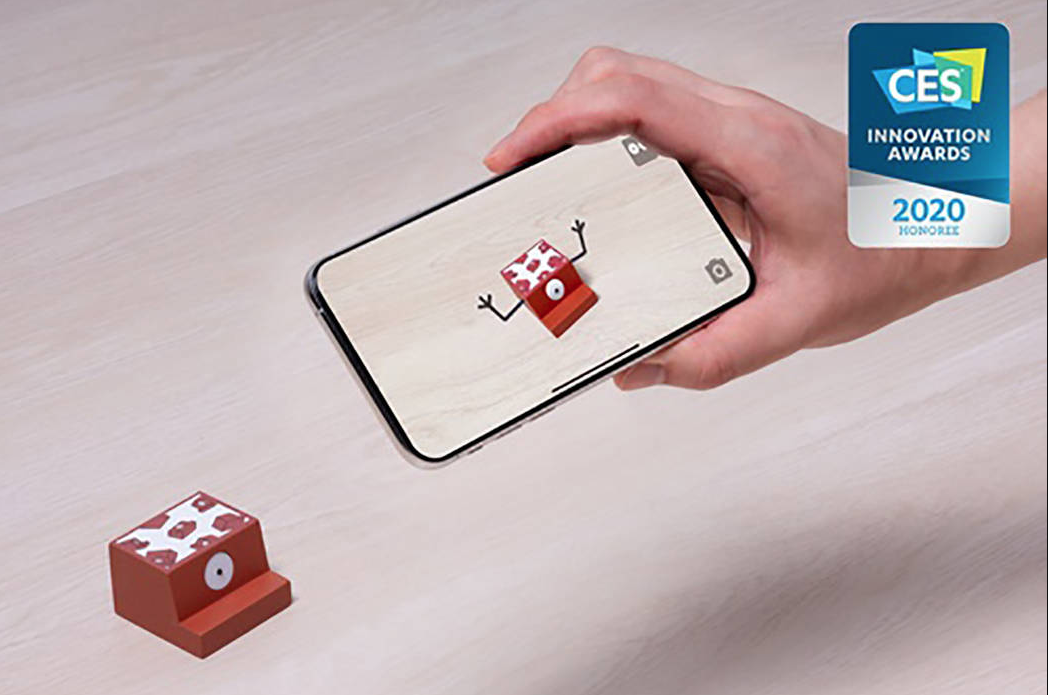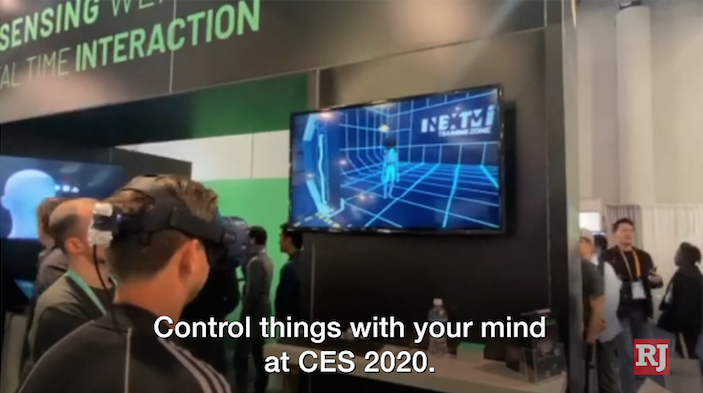VR, AR products blur lines between electronic and reality at CES

CES 2020 offers a variety of gadgets and gizmos for those occupying this mortal plane, but it also offers various futuristic glimpses into a different realm.
Augmented and virtual reality technology will be on full display at various CES venues along the Strip. And while some products offer a consumer-friendly entertainment experience seen at tech conventions for years now, other products still early in their development stages will open a window into science fiction-like innovations, such as controlling a computer with only your mind.
“A lot of people want to know what’s the latest gadget, and this show has them in abundance, but what’s really interesting is finding new uses for technology,” said Steve Koenig, vice president for market research at the Consumer Technology Association, which runs CES.
“That’s the storyline with AR and VR,” Koenig continued. “They’re not just for gaming or fun, impactful consumer experiences. They can benefit the economy through business, engineering and health care applications.” Koenig said this year’s CES will showcase the full spectrum of AR and VR technologies, from improvements on existing technology, such as VR headsets, to what’s next on the innovation side.
Control things with your mind. Another entry seemingly plucked straight out of science fiction comes from NextMind, a Finnish company demonstrating a wearable brain-computer interface that allows you to control computer commands with your mind.
NextMind fits on the back of a cap, headband or VR headset and decodes brainwaves in the user’s visual cortex to determine which option on the screen the user is selecting. A demo video shows the user selecting play from an on-screen play, pause and stop menu.
The marketing package for NextMind challenges users to “feel like a Jedi” by controlling devices with their mind. It will be demonstrated publicly at a CES booth at the Las Vegas Convention Center. “This technology breakthrough represents the next frontier of human-computer interaction,” NextMind CEO Sid Kouider said, adding that its applications “are truly endless.”

See full video here
The device is not yet available to the public, but a number of early access development kits will be released in 2020.
Another product, the CTRL-kit from CTRL-labs, uses an armband to decode motor neuron function into commands on a computer screen.
The CTRL-kit’s sales pitch also promises “Star Wars”-like mind control for users and was honored as a 2020 CES Innovation Award winner.
Simulated background
Spatial computing company ARwall will share its high-tech answer to the green screen in two Las Vegas locations: the DreamlandXR Exhibit Hall at the Alexis Park resort, and a kiosk at M&M’s World on the Strip. ARwall uses augmented reality to create a lifelike backdrop that renders in real time according to the camera user’s perspective, giving it an illusion of depth.
The technology is designed for use in film and commercial shoots. Pricing for ARwall is determined by screen size and other parameters. The company is based in Burbank, California. As with much of the augmented reality products, file ARwall under the “you know, I’m not certain that we all aren’t already living in a computer simulation” tab of CES.
‘Living’ blocks
South Korean startup Dear Architect will demo Roomy, a children’s block set that uses augmented reality software to give the toys hands, blinking eyes and even speech.
Dear Architect claims that the technology will convince children that their wooden blocks are alive. The blocks can build a number of structures that also “come alive” through readily available augmented reality software.
The company hopes to develop an educational aspect in the near future.
The kit is currently available in South Korea, and Dear Architect plans to launch in the United States during the first half of this year.
Contact Rory Appleton at [email protected] or 702-383-0276. Follow @RoryDoesPhonics on Twitter.
Read the original piece here.